First Open Data Forum 2014
Abu Dhabi – UAE – Ritz Carlton, 28-29 April 2014
Under the patronage of
H.H. Sheikh Hazza Bin Zayed Al Nahyan
National Security Advisor, Chairman of Emirates Identity Authority Board of Trustees


The Emirates Identity Authority, the United Nations Public Administration Network (UNPAN) and the United Nations Department of Economic and Social Affairs (UNDESA) are jointly conducting the first Open Government Data Forum 2014 from 28-29 April 2014 at Ritz Carlton Hotel in Abu Dhabi.
The forum is the first of its kind in the region and is hosted by the UAE. It aims to discuss the country’s efforts to boost and launch initiatives in connection to open data that is managed through smart government programs and systems. It will also highlight the impact of the latest developments in open data on the performance of government business and how governments can leverage this trend to identify strategies to maximize the value they deliver to customers.
Organization of the forum is based on Emirates ID’s understanding to the country’s prudent leadership keenness to support and enable knowledge societies and exchange of expertise through such conferences and forums.
The forum’s key topic revolves around the open data policy and how to allow it to customers in a seamless and easy-to-use methods through making all elements and information available within a framework of content that is open for the public to use and reuse, leveraging thereby their level of knowledge and expertise.
The forum will bring together experts and practitioners in the field of smart government data systems from Europe, USA, Middle East region and UAE. This will allow the country to benefit from and transfer international expertise in this area.
The forum will demonstrate experiences of a number of leading countries in the area of open government data and highlight efforts exerted by Emirates ID in particular and government entities in the country in general. It will also introduce experiments of some government agencies in the GCC.
The UAE realized it early on….
The United Arab Emirates realized a long time ago the importance of data and information in both the public and private sectors in enabling her citizens and residents to participate in her growth trajectory to their full satisfaction by virtue of grasping the needs of the society amid global competitive pressures.
In this context, the UAE executed many IT and service initiatives in the sphere of statistics and data, culminating in being listed No.1 in the Anti-corruption Index 2013 from Transparency International for the Middle East and North Africa. The UAE was placed 26th globally in the same index, whose criteria included the degree of disclosure and the obligation thereof besides statistical and informational dissemination.
In the light of the information revolution, whose beginning was coterminous with the age of supercomputing and with the advent of the internet and its wide-spread use across the globe, new types of knowledge, information and data began to manifest themselves in initiatives that began at first at an individual level without the objective of disseminating data as a system subject to international yardsticks, concepts and specifications capable of organizing the nature, display and classification of data suitable for public consumption.
A Brief History
Published information has had an astonishing journey throughout human history. It is integral to the history of humanity itself. It elucidates the nature of data and information that were sought to be transmitted between people, groups or generations. The earliest examples of documentation were in inscriptions found in different parts of the world. In these inscriptions, the ancient men documented their activities in caves or on obelisks or on other surfaces available to them in different stages of their civilizational evolution. The inscriptions also included pictures that revealed the attitudes of ancient men, the environs in which they lived and the concerns that preoccupied their minds. They illustrated much detail about life in those times in an artistic fashion.
Even though we cannot consider these modes of documentation comparable to today’s open data or information, they can be deemed the first prototype of information and data dissemination using the written word. Their beginnings date back to sixth century BC, during which period the Sumerian cuneiform script or the ancient hieroglyphics began to be used, enabling man to express his thoughts and document them for the benefit of others in his time or in future.
In around BC 500, Pythagoras, the mathematician and the founding philosopher of western culture, was born. He elaborated on how math and numbers could explain natural phenomena, thereby inaugurating the era of math, numbers and accounting. This came in handy later on for interpreting natural events, for codifying behaviors and for scripting a way of life in accordance with numbers. As a result, numbers came to form part of man’s basic knowledge. Plato followed in Pythagoras’ footsteps and laid down many theories in this sphere later.
Major initiativesة
It may be said that the major initiatives in the field of open data were launched in the 19th century. One of them was launched by Mathew Fontaine Maury, a specialist in measurement and geographical mapping. After a long and painstaking investigation and monitoring of sailors, he was able to provide an information map that tracked commercial ships, ocean currents, rains and storms. He showed this in tables and graphic images in his important book ‘The Physical Geography of the Sea,’ launching his vast project for safe global seafaring. The book soon became popular among seafarers and was respected as a reference.
In the year 1942, Robert King Merton, a sociologist, introduced his theory, which was named after him, about ‘open sciences,’ arguing in favor of expeditious production and wide dissemination of scientific knowledge by way of facilitating freedom of scientific publication so researchers could build on the work of those that preceded them. Scientist and researchers embraced this concept with avid enthusiasm early on because it offered a way of continuous scientific production in an economical and time-saving manner. In the words of Elinor Orstrom, the economist who won the Nobel Prize in 2009, open data and knowledge constitutes “the base and the only resource that multiplies, rather than diminishes, with consumption.”
With the emerge and proliferation of capital market across the globe by the end of the 18th century and the beginning of the 19th century and the subsequent laws that obligated companies to disclose their account, publicize their budget and unveil details of their project for the shareholders (or general public), companies began to publish their data in fulfilment of the rights of the shareholders to know about their savings. The companies benefited from this disclosure as it supported their growth and publicized their activities and practices, creating a milieu of positive competition in the markets marked by a hunger for information. It also led to millions of people following market developments and commerce.
In the year 2007, around 30 top thinkers and activists met in San Francisco, USA, to define ‘open data’ and to lay down rules for their regulation. They called for the open data to be made available to the public. They also explained how these could be used in the presidential elections. In this, they relied on the principle of the major benefit that open resources promised. For example, software programmers benefited from open data, enabling them to download programs and tools to develop electronic systems free of cost. Large corporates in the field worked on providing this.
Wikipedia was the most important initiative in the field of free knowledge dissemination, benefitting millions of people. It aims at creating one of the largest private knowledge complexes owned by those who edit it and add to it. Among its founders were the inventor of RSS and other who founded popular monitoring sites to track goods and services such as Better Business Bureau and FixMyStreet.
Modern Open Data
One of the basic stipulates adopted by this group is the idea that “public data are owned by all, like ideas or scientific theories.” It focused on three primary principles:
- Transparency and Openness
- Cooperation and collaboration
- Participation
This basic stipulate found easy acceptance and soon governments began adopting and implementing this through laws and legislations that strengthened the process of dissemination, statistical transparency in regard to data that concern the public and impact positively in the protection of their social, economic and personal rights.
The evolution of the definition of open data include the added value from sharing data to a third party – through the internet – which is a format that allows reuse (Pictures are not considered open data even if they are of numbers).
Among the major benefits of open data in today’s world are as follows:
- Supporting the operationalization and creation of work opportunities where the open data serve as an incentive for foreign investments and business environs. .
- Encouraging innovation through the utilization of data by private organizations to design new value added services.
- Supporting scientific research with the use of inputs and statistics issued by various organizations.
- Supporting strategic planning operations, with data from external environment (Pest1) serving as one of the approved criteria.
- Enhancing competitive capacities and strengthening innovation generally for the welfare of the society and markets.
- Rectification of economic and social decision at the small and medium levels so individuals and companies and corporates are provided the necessary information to set up investments and take decisions for vertical and horizontal expansion.
- Providing support for confidence, consistency and popular collaboration to increase understanding.
- Weakening the scope for corruption as a result of public accountability systems.
- Supporting economic prosperity and social security.
Dr. Ali Mohamed Al Khouri
Experience of Emirates ID Contributed to Development
The Emirates Identity Authority’s Strategy 2014 – 2016 builds on the foundation of the previous 2010 – 2013 strategy to achieve the ‘UAE Vision 2021’. It forms the basis upon which the federal institutions develop their strategic and operational plans, and consists of seven general principles, seven strategic priorities, and seven strategic enablers. Through these, the Emirates ID strives to ensure the execution of all its projects and initiatives in line with a set of guiding principles that put citizens first and promote accountability, flexibility, innovation and a sharp vision.
It is in the spirit of the UAE Vision 2021 that UNDESA and the Emirates ID Authority signed a Memorandum of Understanding to strengthen the capacity of the latterand other institutions in the area of e-government and open government. One of the major activities in this memorandum was to hold an International Forum on Open Government Data.
The signing of the MoU came in view of the pioneering role that Emirates ID was playing in the development of smart identity projects regionally and globally. The two sides have already established a cooperative relationship over the past three years concerning issues of identity and e-government.
The Forum’s main objective is to share the international as well as regional (GCC) experience in e-government and open government data to government institutions and authorities within the UAE and other Gulf countries. It also focuses on developing open data platforms and tools using national ID data..
The Forum will tackle the issues of:
- Using public open data to develop applications for citizens
- Strengthening the security of open data platforms
- Case studies of leading open data countries on implementing open data projects by the public sector
- Collaboration with the private sector in developing open data services
- Examples from international organizations on developing open data tools and portals
In addition, there will also be a panel discussion among leading open data institutions from the GCC.
This forum should be seen as the beginning of other capacity building initiatives in the region and the UAE. It should be looked at as a window to the future of what the UAE and other Gulf countries can achieve by embracing open data and open government to the benefit of their respective citizens.
The fundamental objective of e-government and open government is to provide citizens with more opportunities and knowledge. This forum is an example of such commitments.
Vincenzo Aquaro
Chief E-Government Unit, UNDESA
The forum focuses on open data projects and management processes, enhancing government services transparency, contributing to providing open data for government systems in the UAE and enhance opportunities for benefitting from the digital ID project.
The forum seeks to raise awareness among experts and observers in respect of statistics, reports and studies related to open data, a matter which will give participation in the event a cognitive perspective. Participants will learn about the best successful practices presented by a group of regional and international experts responsible for managing and establishing open data platforms, smart services and digital content.
The European Commission defines open data as all the data and information produced, collected or purchased by government agencies, such as statistics and spatial data, as well as data resulting from projects financed by those government agencies.
The concept highlights the initiatives by governments around the world to allow government open data for stakeholders in a way that enables researchers to obtain information that can be used safely. Such data should be provided in a file format.
- Contribute to boosting Emirates ID’s vision and mission set out in its 2014-2016 strategy.
- Present the outstanding experiences and the regional and international best practices in the field of open data and benefit from them.
- Enrich knowledge and capabilities of participants.
- Encourage government agencies to adopt open government data policy and provide better services to customers.
- Provide a set of practical and applied recommendations and proposals in addition to the presented experiences.
- Promote and enhance practices of the open data culture.
- Contribute to raising awareness and strengthening success factors through the adoption of open government data policy.
- Open government data domains and how it is connected to the smart government.
- Role played by IT Systems administrators in managing open government data and boost transparency of services.
- Open government data Criteria and Policies in the UAE and the region.
- Governance strategies and social electronic participation.
- Mechanisms of eServices provision to customers and means for customers to communicate with government.
- Cloud computing and IT security strategies in open data.
- Partnerships between public and private sectors in open data arenas.
- Identifying opportunities for open government data using mobile applications and how to benefit from them.
Ritz Carlton Hotel
Rome Hall
Abu Dhabi, United Arab Emirates
The registration for the forum has been closed
First Day
| Name | CSV |
|---|---|
| Anat Lewin |  Download(6.09 MB) Download(6.09 MB) |
| Andrew Stott |  Download(12.5 MB) |
| Bill McGluggage |  Download(1.19 MB) |
| Young Sun Lee |  Download(4.70 MB) |
| Eddy van der Stock |  Download(8.60 MB) |
| Geert Mareels |  Download(5.47 MB) |
| Karl Chambers |  Download(1.43 MB) |
| Micheline Casey |  Download(6.69 MB) |
| Richard Kerby |  Download(1.64 MB) |
| Richard Stirling |  Download(4.90 MB) |
| Romain Lacombe |  Download(28.2 MB) |
| Taghreed Badawoud |  Download(12.0 MB) Download(12.0 MB) |
| Vassilios Peristeras Programme |  Download(2.23 MB) |
| Vincenzo Aquaro |  Download(4.27 MB) Download(4.27 MB) |
| Vishal Marria |  Download(1.61 MB) |
Second Day
| Name | CSV |
|---|---|
| Abdullah Kindi |  Download(3.65 MB) |
| Beau Parry |  Download(5.58 MB) |
| Carel Badenhorst |  Download(2.85 MB) Download(2.85 MB) |
| Charles Coupet |  Download(11.9 MB) |
| Dr Mohammad Khan |  Download(7.64 MB) |
| Dr. Mohammad Alahbabi |  Download(798 KB) |
| Eric Kavanagh |  Download(6.30 MB) |
| Fred McGarry |  Download(118.2 MB) |
| Greg Elin |  Download(22.9 MB) |
| Ibrahim Elbadawi |  Download(4.27 MB) |
| Justin Magruder |  Download(1.42 MB) |
| Mohammed Al Aseeri |  Download(301 KB) |
| Paulo Alencar.ppt |  Download(714 KB) Download(714 KB) |
| Usman Zafar |  Download(18.5 MB) |
| Wyatt Kash |  Download(7.43 MB) |
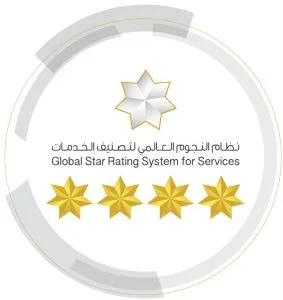

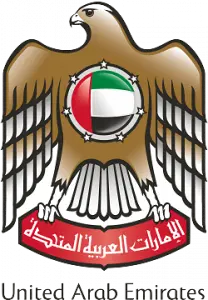
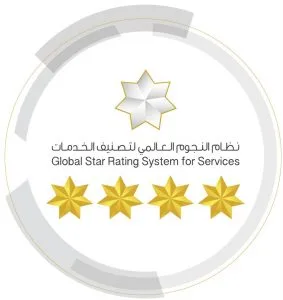













































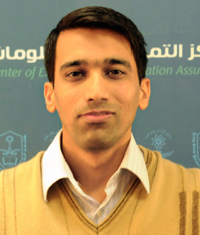





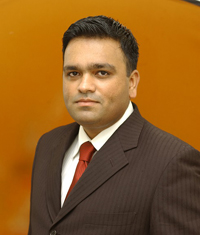



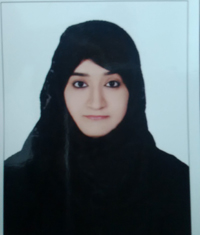








Give us your rating